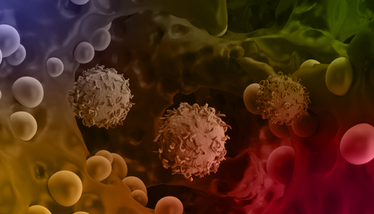Allogeneic Cell Therapy: The Story So Far
A review article examines the evolving strategies and safety outcomes with allogeneic CAR T cell therapy
Stephanie Vine | | 3 min read | News

An open access review article has outlined the clinical progress of allogeneic CAR T therapies so far, with particular emphasis on their application across hematologic malignancies, autoimmune diseases, and viral infections. Since the first clinical trial launched in 2009, over 50 trials evaluating allogeneic CAR therapies have been registered. Unlike autologous CAR-T therapies, which require manufacturing from a patient’s own T cells, allogeneic approaches use donor-derived or stem cell-derived immune cells engineered to express CAR The intent is to create scalable, off-the-shelf therapies that reduce manufacturing complexity and broaden patient access – particularly for those who lack sufficient T cells because of disease burden or prior treatment.
Therapies to watch
The review describes clinical investigations involving a range of cell types, including T cells, NK cells, and invariant NKT cells. One of the most studied candidates to date is UCART19, a TALEN-edited, donor-derived CD19-targeting CAR-T product being co-developed by Servier and Allogene Therapeutics. Tested in patients with relapsed or refractory B-cell acute lymphoblastic leukemia, UCART19 showed a 67 percent complete response or complete response with incomplete hematological recovery. A significant drawback, however, is that cytokine release syndrome was observed in over 90 percent of patients. In most cases, this was classed as mild or moderate.
Another allogeneic product, ALLO-715 (Allogene Therapeutics), targets BCMA in multiple myeloma. It uses a similar TALEN-based editing strategy and has shown response rates exceeding 70 percent in high-dose cohorts. Still, the need for intensive lymphodepletion regimens remains a limiting factor, both from a safety and logistical standpoint. Attempts to modulate preconditioning through combinations of fludarabine, cyclophosphamide, and anti-CD52 antibodies such as alemtuzumab have had mixed results, with infection and cytopenia emerging as recurring concerns.
Beyond T cells, CAR-NK therapies offer a lower risk of graft versus host disease and are being investigated in patients with lymphoid malignancies. One trial using cord blood-derived CD19-targeting CAR-NK cells reported a 73 percent response rate without cytokine release syndrome, neurotoxicity, or graft versus host disease. These products often incorporate IL-15 to improve persistence, though the need for fresh (rather than cryopreserved) cell infusions introduces logistical hurdles. iPSC-derived NK cells, such as those in the FT596 program (Fate Therapeutics), are also under study. This platform allows for more uniform manufacturing and has shown promising safety data. The addition of anti-CD20 antibodies such as rituximab could further enhance anti-tumor effects through antibody-dependent cellular cytotoxicity.
The review also highlights early-stage applications in autoimmune disease. In a three-patient trial, a heavily gene-edited allogeneic CAR-T product (TyU19) being developed by academics in China led to deep remission in systemic sclerosis and immune-mediated myopathy. No severe adverse events were reported, and all patients experienced sustained B cell depletion. Although the trial was small, the results suggest potential utility in settings beyond oncology, provided safety profiles remain favorable.
Tackling the challenges
Although there are many intriguing therapies in development, allogeneic CAR therapies still face notable obstacles, related to immune rejection, limited persistence, and treatment-associated toxicities. A major concern is the rapid elimination of donor-derived cells by the host immune system, primarily through recognition of non-self MHC molecules. To mitigate this, developers commonly delete genes like beta-2 microglobulin (to disrupt MHC class I) and CIITA (to disrupt class II), but this can trigger NK cell responses. Some therapies counter this by expressing NK-inhibitory ligands such as HLA-E, helping the cells evade both T cells and NK cells. Persistence remains another limitation, often addressed through the inclusion of cytokine support elements like membrane-bound IL-15 or IL-15 receptor fusions. Products such as FT596 incorporate these strategies and have shown prolonged cell survival in early studies.
Safety mechanisms are also increasingly built into allogeneic therapies. These include inducible suicide switches like iCasp9 or surface markers like RQR8 that allow selective cell depletion if needed. Meanwhile, conditioning regimens – typically involving fludarabine, cyclophosphamide, and alemtuzumab – remain essential but can cause cytopenia and infection. Ongoing trials are testing reduced-intensity and antibody-based alternatives. Collectively, these engineering and clinical refinements aim to overcome the immunologic and logistical hurdles that currently limit the durability and broader application of off-the-shelf cell therapies.

Making great scientific magazines isn’t just about delivering knowledge and high quality content; it’s also about packaging these in the right words to ensure that someone is truly inspired by a topic. My passion is ensuring that our authors’ expertise is presented as a seamless and enjoyable reading experience, whether in print, in digital or on social media. I’ve spent fourteen years writing and editing features for scientific and manufacturing publications, and in making this content engaging and accessible without sacrificing its scientific integrity. There is nothing better than a magazine with great content that feels great to read.



















